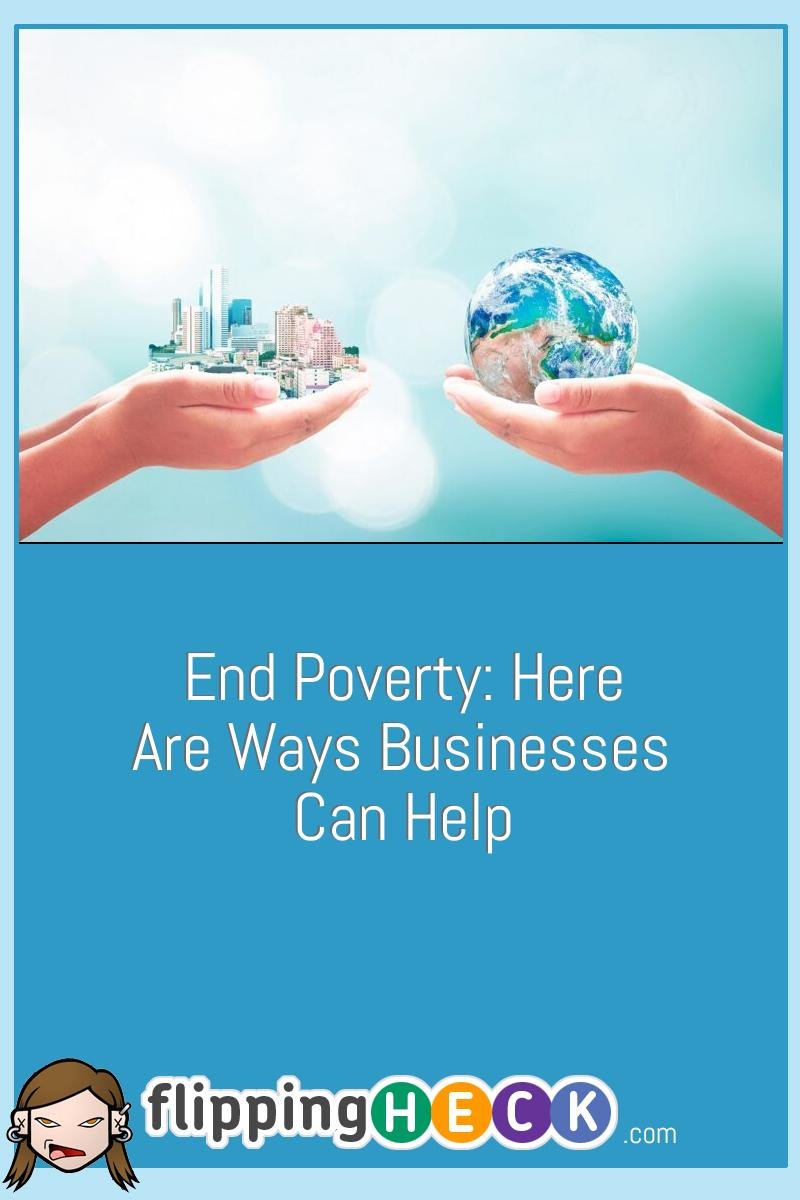End Poverty: Here are Ways Businesses Can Help
Poverty is an enduring problem that has been around for far too long. It can be passed from parent to children if no one intervenes. Businesses can alleviate the lives of people who live in poverty. Here’s how.

Businesses have the capacity to end the cycle of poverty, especially in nations where they source their manufacturing and materials.
Poverty has been a problem for far too long. The wealth inequality around the world means that only a small percentage of the population gets rich and, because they have access to more resources and opportunities, they grow richer over time. The rest, however, remains poor. Without interventions, they will remain poor.
Around 1.89 billion people, or 36% of the entire world’s population, lives in poverty in 2020, according to World Vision. The global pandemic, which caused economic downturns and mass unemployment will only exacerbate the condition of many people already on the brink of poverty.
Companies can end the cycle of poverty. Here’s how they can help.
Education As A Key Out Of Poverty
Education is still one of the best ways out of poverty. Through education, new doors are opened. Young people can access information and training that can lift themselves, as well as their neighborhood, out of poverty.
One estimate claims that up to 171 million people, or 12% of the world total, can get out of extreme poverty if children gain basic reading skills from school. When they grow up, they are likely to earn 10% more for each year they went to school.
It is clear that the lack of education plays a huge part in keeping people under the poverty line poor. By providing learning opportunities, through scholarship or traineeship programs, businesses can create a better future for these children.
Source Sustainably And Ethically
So many big, multi-million dollar, international brands have been exploiting workers in developing countries. They move the production of their products to countries where the cost of labour is cheap and workers are treated like slaves.
In 2013, a garment factory in Bangladesh collapsed, killing more than 1,000 people and injuring 2,500 more. It highlighted the often unsafe working environments that disadvantaged individuals in Bangladesh and many other countries in the world were subjected to.
Similarly, mass manufacturing products also severely damages the environment and the communities around it.

A documentary called RiverBlue revealed how the bodies of water surrounding garment factories have turned into a different colours because of all the chemicals dumped into it to manufacture the clothing you see on runways and store shelves.
Sourcing sustainably and ethically means that companies pay workers a liveable wage and seek to protect the environment from harm that typically comes with manufacturing.
Create Affordable Products
The people living in poverty do not have access to the same selections of goods as the rest of the world does. For example, whereas a person living in L.A. can go to the farmer’s market where they can pick up straight-from-the-ground fresh fruits that have not been exposed to fertilizers, a family in a developing country can only buy instant noodles and canned goods.
Designing products and services specifically for the poor gives them more options that may be able to improve their lives. A smartphone may be ubiquitous in rich nations but, to poor families, it may be a gateway to a better-paying job or resources that can help them financially.
Come up with a shared value wherein both the company and the community can benefit.
Encourage Philanthropy
Philanthropy benefits businesses because it creates a positive reputation among the public and it attracts the best employees. People trust a company whose primary goal is not to earn money, but to change the world.
Volunteerism programs, wherein the employees can spend time around impoverished individuals and families, and giving donations to charities will be good for morale and will make the company socially-responsible.
Of course, the people you help get to have food on their tables, roofs over their heads, and a little extra cash in their wallets.
In a world with so much injustice and poverty is still a problem, businesses can make a difference. Every good deed, no matter how small, can create a better future for vulnerable communities.











